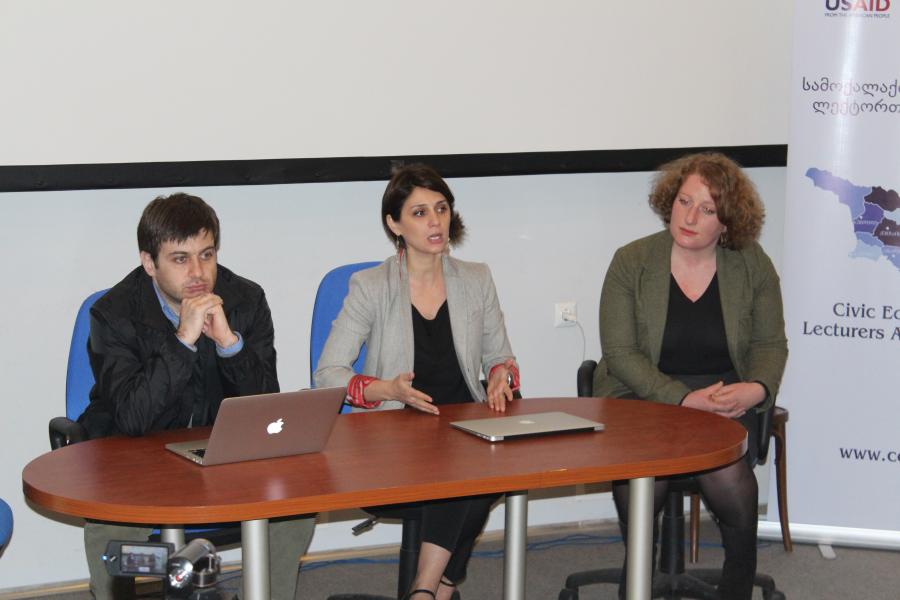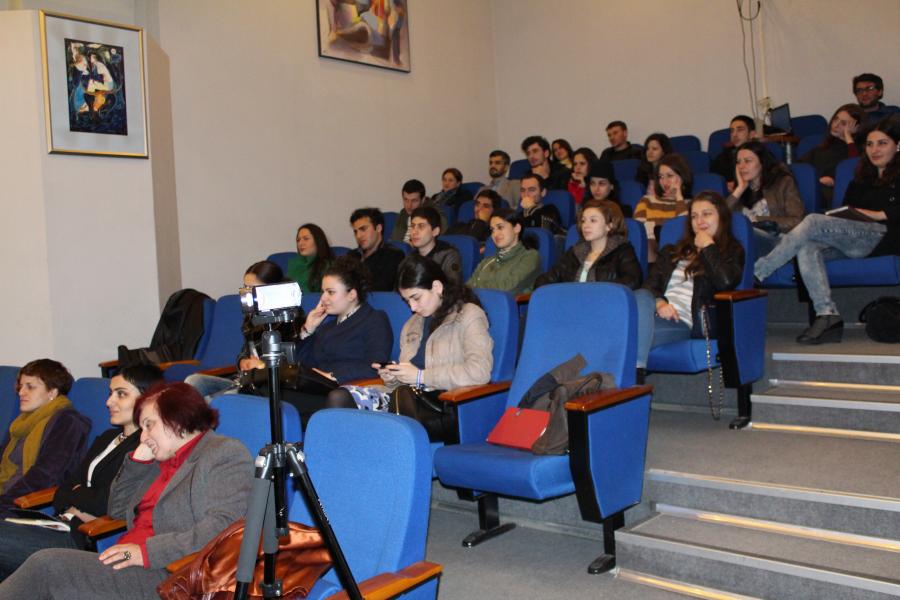On April 2, the Civic Education lecturers Association organized 4th discussion on the subject of Urban Civic Engagement at the National Parliamentary Library of Georgia. The discussion was lead by Tamar Amashukeli, executive director of Tiflis Hamkari and Erekle Urushadze, representative of Guerilla Gardening Tbilisi. The discussion was moderated by Tamar Karaia.
The Speakers emphasized importance of Urban Civic Engagement and urgency of its intensification in Georgia. They discussed some of the strategies and their results by using specific examples, such as “Save Gudiashvili” and “Guerilla Gardening against Constructions in the Vake Park”.

Ms. Tamar Amashukeli while speaking about activities of Tiflis Hamkar, that aim to protect cultural heritage of the city, stressed the importance of active involvement of residents in the city's development and in protection and maintenance of a unique urban environment and cultural heritage.
Mr. Erekle Urushadze, representative of Guerilla Gardening Tbilisi, spoke about main goals of the movement. According to him they are fighting to improve environmental situation and protect green cover of Tbilisi. Mr. Urushadze also spoke about their contribution in park-protection fight, when in various forms of protest they resisted to the decision to build Hotel Budapest in the Vake Park.
There was a screening of a short video “Protect Gudiashvili” prepared by Tiflis Hamkar on the discussion. It reveals citizens energetic involvement in activities that aimed to save Gudiashvili Square.

At the end of the discussion, it was noted that Civic Involvement is a comprehensive issue, that above all, is related to the self-organization of citizens. The protests in order to protect the Vake Park or Gudiashvili Square do not still indicate presence of active Civic Engagement. The main factor is to realize and feel, that our country is our home, that we should protect due to our civic self-conscious.
Series of discussions “Dialogues on Democracy” were held by the Civic Education Lecturers Association and made possible with the financial support of USAID in the framework of the project Strengthening Electoral Processes (SEP), implemented by the International Foundation for Electoral Systems (IFES).


